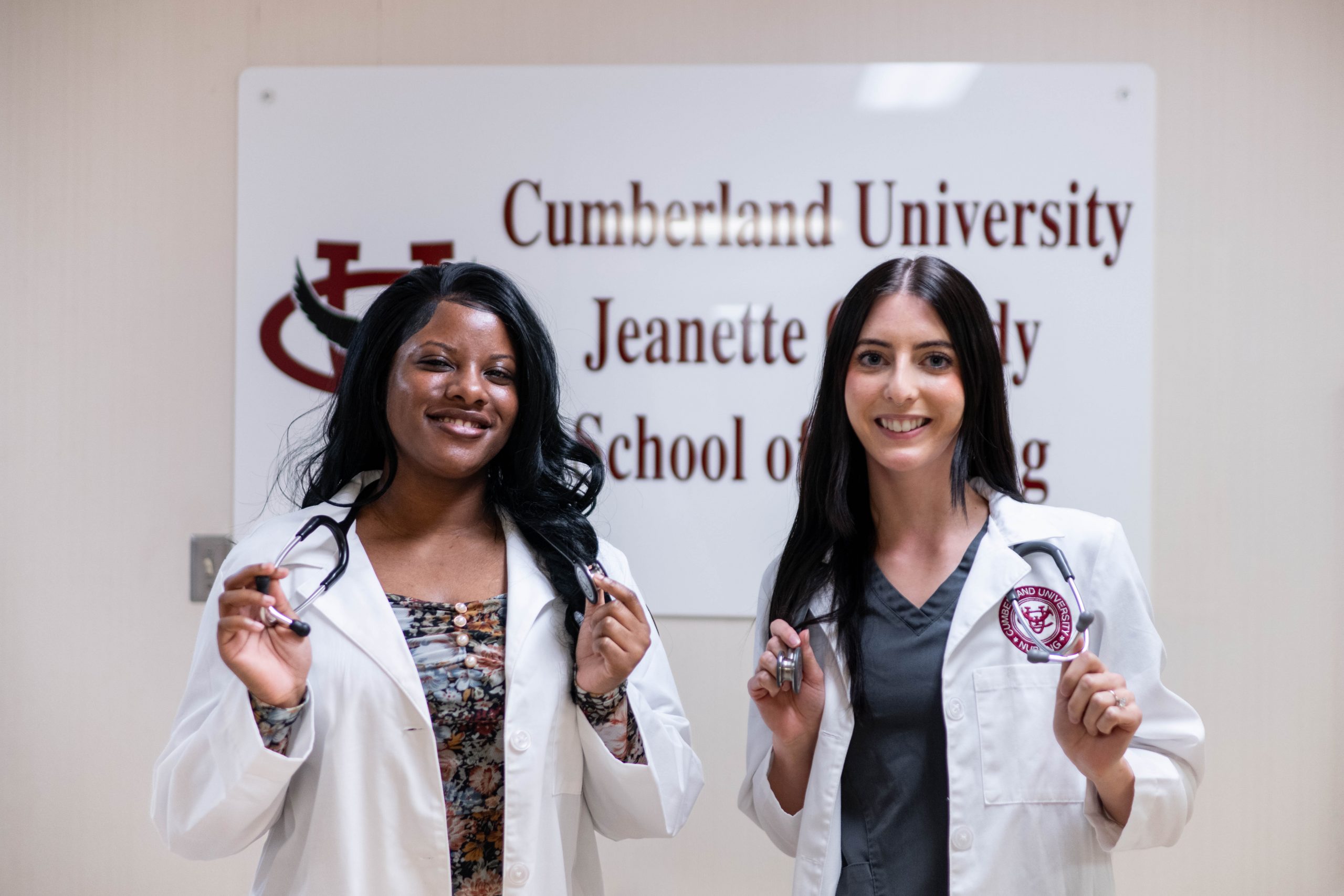Goals and Objectives
-
To offer a Bachelor of Science in Nursing (B.S.N.) based in the liberal arts.
-
To prepare a generalist nurse who demonstrates competent clinical skills and leadership qualities through the use of transfer of learning, critical thinking and decision-making.
-
To provide opportunities for individuals with degrees and/or nursing licensure to further their educational preparation.
-
To graduate professional nurses who are responsive to the changing health care needs of society.
NOTE: The Cumberland University Rudy School of Nursing offers a B.S.N. degree, not an associates degree (A.D.).
Program Outcomes
Graduates of Cumberland University’s Bachelor of Science in Nursing program will:
-
Integrate critical thinking, based on a liberal arts foundation, and clinical reasoning for the development of clinical judgment in planning holistic, person-centered care.
-
Incorporate current best evidence with clinical expertise and patient/family preferences and values into optimal clinical decision-making within the four spheres of care.
-
Demonstrate effective and compassionate communication strategies that support the patient, family, and community’s full engagement in their care, health, and wellness.
-
Employ established and emerging principles of safety for the enhanced quality of nursing care and minimized risk of harm to patients.
-
Engage in partnership with health professionals for the provision of team-based, person-centered care to promote equitable population health outcomes.
-
Effectively use electronic tools and technology for interprofessional communication and for the collection and interpretation of data to support clinical decision making.
-
Apply principles of professional nursing ethics through respect for diverse individuals, recognizing the person’s autonomy by advocating for their well-being and healthcare equity.
-
Engage in personal wellbeing and leadership activities in an interprofessional environment for the continuous improvement of quality and safety in healthcare systems.
Graduation Timeline
If you are admitted for the fall semester, you will take nursing classes in the fall, spring (year 1); fall, spring (year 2) and graduate after the fall semester (year 3). If you are admitted in the spring semester, you will take nursing classes in the spring (year 1), fall, spring (year 2) and fall, spring (year 3) and graduate in the spring. Students may choose to attend full-time or part-time. Part-time attendance will extend the graduation timeline.


